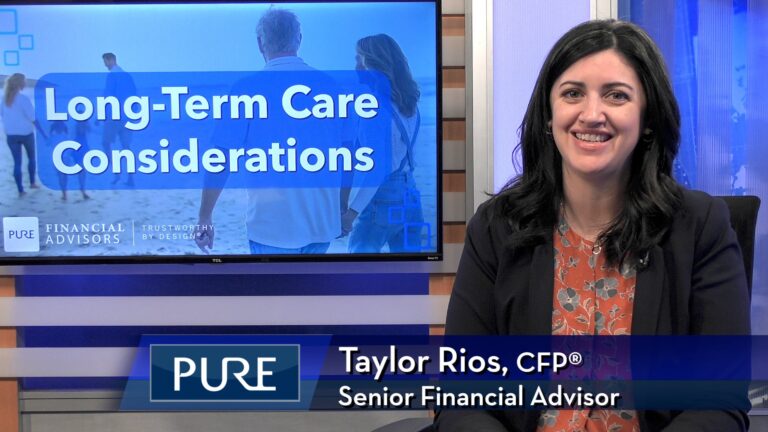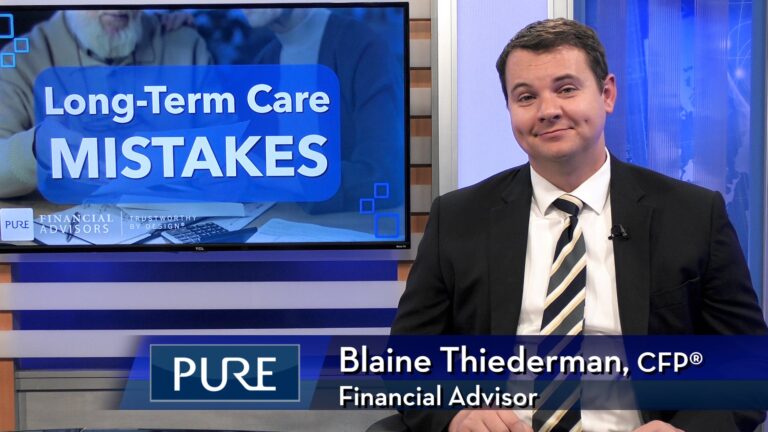Are you a mutual fund investor? Learn about how capital gain distributions may impact you and your taxes. Senior Financial Planner, Nathaniel Ritchison, CFP®, AIF® provides an overview of capital gains and potential strategies for mutual fund investors.
FREE GUIDE | End of Year Tax Strategies

Transcript
The pain being felt by investors could get much worse by year-end even if markets recover from here. This fall, mutual funds will begin releasing information on capital gains dividends to be paid out prior to year end. This means that you could be paying taxes on these cap gain dividends at the same time that you have investment losses on your mutual funds if you’re not careful. Let’s talk about who might get hit with these capital gains dividends and how to plan to mitigate the damage while you still have some time.
As of the end of July 2022, 97% of all mutual funds, active and passive, had negative returns. Dating back to 2001, this is the worst year for performance — even worse than during the Great Financial Crisis in 2008 when considering the breadth of the losses. While year to date equity returns are not worse than 2008, the current significant weakness in fixed income pushes the total number of funds with losses in 2022 significantly higher than in 2008. The breadth of funds at a loss, have not been seen since 2001.
Despite these losses on most mutual funds, there is an increased likelihood that they will distribute capital gain dividends this year due to substantial outflows from actively managed mutual funds and increased trading in the volatile market on the back of a high performing 2021. Remember, whenever there is a redemption of a mutual fund, it must sell securities to raise cash, which could create capital gains distributions for investors that still hold the fund. The last time we had this breadth of funds at a loss was 2001 and in the five years since 2001 when mutual funds had net outflows, 53% of funds on average paid cap gains dividends. And in terms of the most similar year to 2022 for the performance we look no further than back to 2018 when markets nearly fell into a bear market and rates rose. Does this sound familiar? In that environment in 2018, 61% of funds paid cap gains. Given the comparisons between the breadth and depth in losses to mutual funds this year, estimates are that nearly one-third of the active mutual funds with losses will distribute capital gains before the year is over.
If you own a mutual fund that is down on the year, underperforming it’s benchmark, and has historically paid a capital gain, perhaps it’s time to consider cutting your losses before a bad situation gets worse. Harvesting the losses from your portfolio and swapping into an indexed ETF could lower your portfolio costs and increase its tax-efficiency. So be on the look out for mutual fund capital gain distributions, the hidden tax.
Subscribe to our YouTube channel.
IMPORTANT DISCLOSURES:
• Investment Advisory and Financial Planning Services are offered through Pure Financial Advisors, LLC, a Registered Investment Advisor.
• Pure Financial Advisors LLC does not offer tax or legal advice. Consult with your tax advisor or attorney regarding specific situations.
• Opinions expressed are subject to change without notice and are not intended as investment advice or to predict future performance.
• Investing involves risk including the potential loss of principal. No investment strategy can guarantee a profit or protect against loss in periods of declining values.
• All information is believed to be from reliable sources; however, we make no representation as to its completeness or accuracy.
• Intended for educational purposes only and are not intended as individualized advice or a guarantee that you will achieve a desired result. Before implementing any strategies discussed you should consult your tax and financial advisors.
CFP® – The CERTIFIED FINANCIAL PLANNER™ certification is by the Certified Financial Planner Board of Standards, Inc. To attain the right to use the CFP® designation, an individual must satisfactorily fulfill education, experience and ethics requirements as well as pass a comprehensive exam. Thirty hours of continuing education is required every two years to maintain the designation.
AIF® – Accredited Investment Fiduciary designation is administered by the Center for Fiduciary Studies fi360. To receive the AIF Designation, an individual must meet prerequisite criteria, complete a training program, and pass a comprehensive examination. Six hours of continuing education is required annually to maintain the designation.










